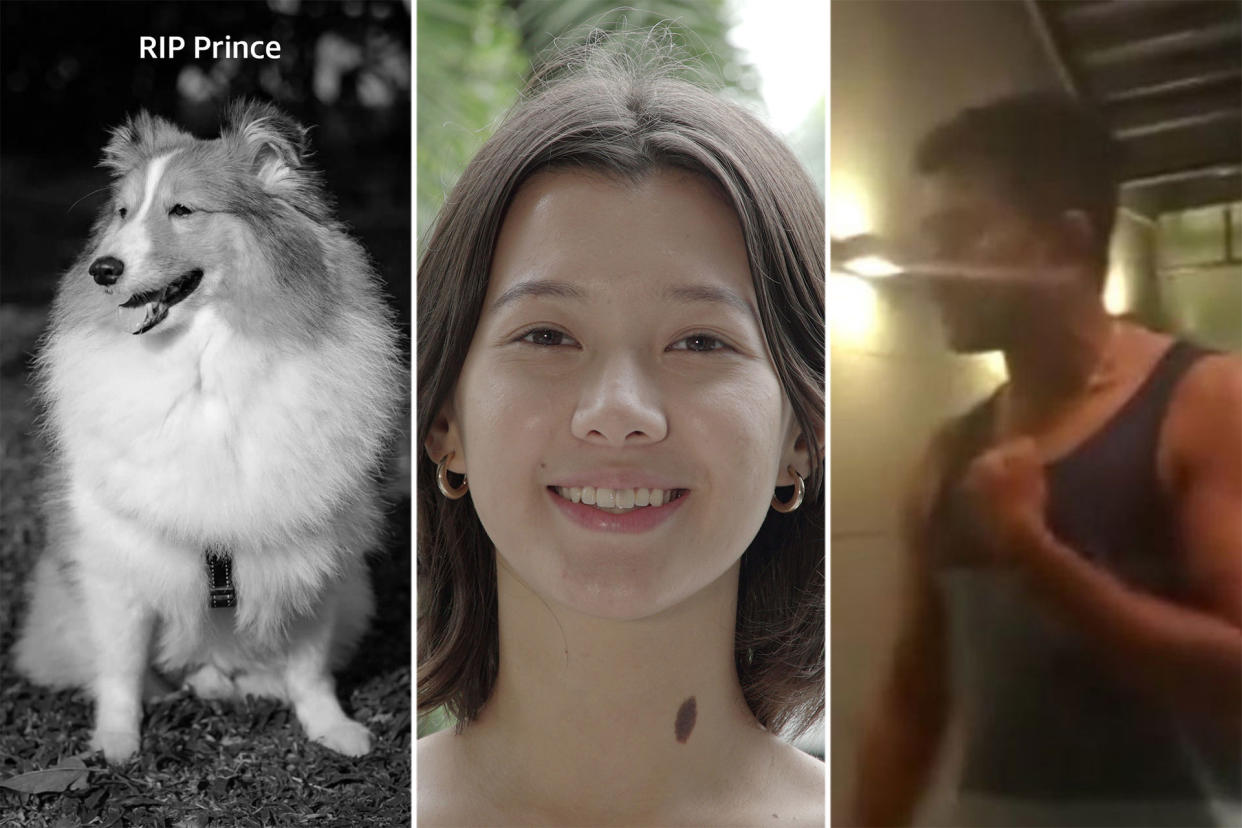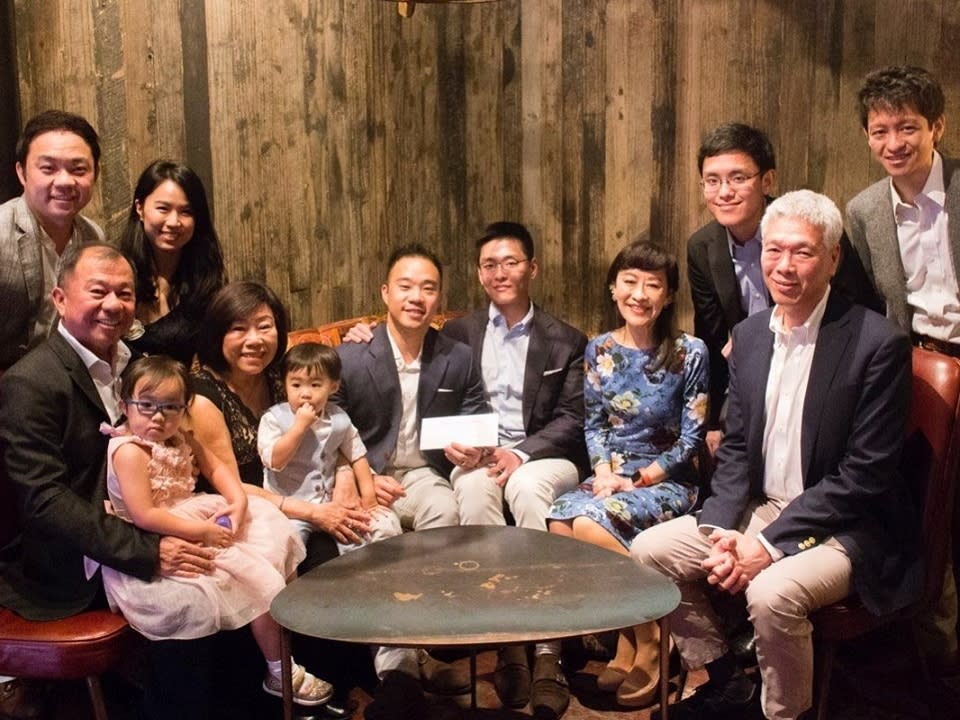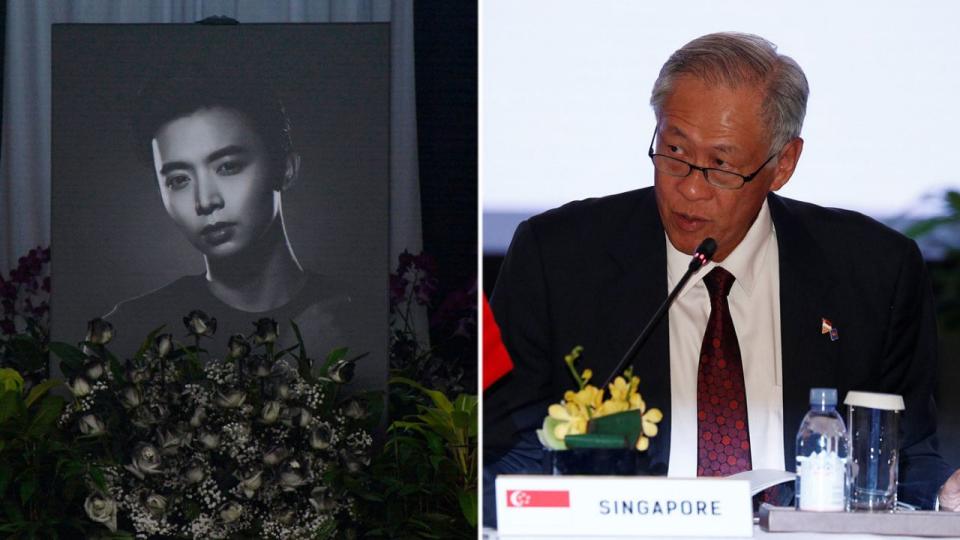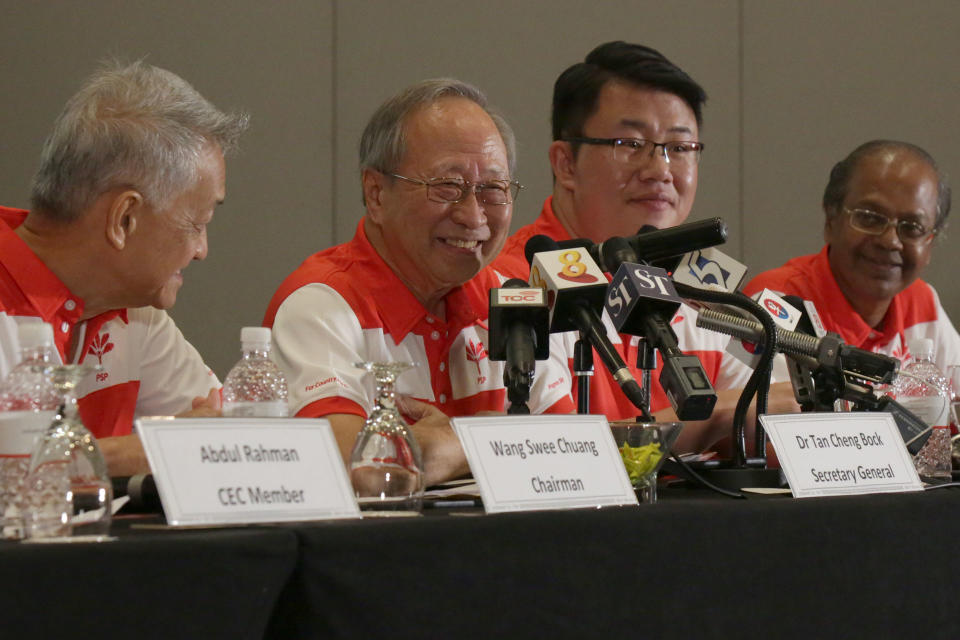Year In Review: Top 10 news stories in Singapore

SINGAPORE — From the never-ending AHTC saga to sexual offences on campus to the death of Aloysius Pang, these were the news developments that got Yahoo News Singapore readers talking in 2019.
Aljunied-Hougang Town Council verdict
A saga eight years in the making, the High Court verdict on the Aljunied Hougang Town Council (AHTC) civil suit was finally handed down on 11 October: Workers’ Party (WP) chief Pritam Singh and his fellow Aljunied GRC Members of Parliament Sylvia Lim and Low Thia Khiang were found liable for damages suffered by AHTC, which is said to have made millions in improper payments under their watch.
High Court judge Kannan Ramesh said that Lim and Low had breached their fiduciary duties, while Pritam breached his duties of skill and care in the hiring of the town council’s managing agent FM Solutions & Services (FMSS). This resulted in the town council paying at least $33.7 million to FMSS from July 2011 to July 2015.
This caused Deputy Prime Minister Heng Swee Keat to move a parliamentary motion on 5 November calling on Lim and Low to recuse themselves from all financial matters and oversight in relation to AHTC. Lim responded by calling the motion premature, given that the WP intended to appeal the judgement. The DPM looked unprepared and flustered, calling for a break just 10 minutes into the debate on the motion.
The case will now move on to a second round of hearings to determine the quantum of damages suffered by the town council, and how much it can recover from the MPs.
Platinium saga
It was the saga that reflected just how vocal and influential animal lovers have become: allegations of pet abuse at pet boarding facility Platinium Dogs Club that prompted a raid by authorities, and even got Home Affairs and Law Minister K Shanmugam to weigh in.
Grisly details emerged, with up to three dogs retrieved from Platinium for cremation. Bid manager Elaine Mao’s Shetland sheepdog Prince was nowhere to be found during the police raid - it later emerged that it had died and been cremated without Mao’s knowledge. It caused an uproar among animal lovers.
The Platinium owner, a woman apparently named Charlotte Liew who also ran flower delivery service LaFrenchRoses and Raffles Tuition Centre, was eventually arrested. As of late November, she was out on bail and assisting authorities with investigations.
A fami-Lee affair

While there were no major developments in the Lee saga, the Lees continued to remain prominent in the news, particularly in light of Hsien Yang’s public support for Tan Cheng Bock and his nascent Progress Singapore Party (PSP). Prime Minister Lee Hsien Loong’s younger brother has even accompanied Tan on informal walkabouts, prompting speculation that he may run in the next General Election.
Hsien Yang has also funded the legal defence of blogger Leong Sze Hian, who is being sued by PM Lee for defamation, and activist Jolovan Wham, who is facing contempt of court charges. He was also seen at a fundraising event for sociopolitical blog The Online Citizen.
Meanwhile, his younger son Huanwu married his male partner in South Africa. The family also attended the annual Pink Dot event, held in support of Singapore’s lesbian, gay, bisexual, transgender and queer (LGBTQ) community.
On the other side of the Lees, PM Lee’s son Yipeng found himself in the news when he accepted a ride from a driver who then filmed and uploaded videos of him. The driver was eventually fined $900 for the offence of using a mobile phone while driving, but questions were raised by lawyers as to why the police revealed his antecedents at the start of their investigation.
POFMA: the anti-fake news law
A seven-week public consultation, days of Select Committee hearings - including a six-hour grilling of academic Thum Ping Tjin over his research into Singapore history - and a contentious parliamentary debate later, Singapore’s controversial anti-fake news law was finally passed by Parliament in May this year and took effect on 2 October.
The Protection from Online Falsehoods and Manipulation Act (POFMA) states that a statement is false if it is false or misleading, whether wholly or in part, and whether on its own or in the context in which it appears. Perpetrators face fines of between $30,000 and up to $1 million, and/or up to 10 years’ jail. Critics of the law charge that it is aimed at silencing dissent.
As of 16 December, the law has been invoked five times. The targets have been opposition party members and vocal critics of the government. Social media giant Facebook was ordered by the POFMA Office to issue a correction order in relation to a State Times Review post on its platform.
HIV data leak
In the wake of the 2018 SingHealth cyberattack that saw the health records of 1.5 million patients compromised, came an even greater bombshell: the HIV-positive status of 14,200 people and their identification numbers and contact details were leaked online by American conman Mikhy Farrera Brochez.
It was the latest of several major incidents under Health Minister Gan Kim Yong’s watch. While Brochez was subsequently charged in a Kentucky court and jailed, serious questions were raised about how the Health Ministry handled the issue. Brochez obtained the database from Ler Teck Siang, a former head of the Health Ministry’s National Public Health Unit (NPHU), and Brochez’s romantic partner.
Ler was subsequently convicted of drug offences. It also emerged that Brochez, who taught in two polytechnics in Singapore, had forged his academic credentials.
Sexual offences on campus

The #MeToo movement reached its apex in Singapore, when National University of Singapore (NUS) undergraduate Monica Baey called for “justice” against fellow student Nicholas Lim for filming her showering in an NUS hostel. Lim was given a 12-month conditional warning from police and was suspended from school for a semester, but Baey maintained that the punishment was too light, and blasted the university administration for its handling of the matter.
Her complaint on social media quickly went viral, and eventually led to NUS setting up a Victim Care Unit (VCU) to provide confidential and professional care to victims of sexual misconduct. Education Minister Ong Ye Kung weighed in, calling Lim’s punishment ‘manifestly inadequate’. In light of the incident, other universities were also forced re-examine their own policies on sexual assault.
In November, Baey was one of three individuals honoured by women’s advocacy group AWARE at its annual gala
The controversy has not died down: in recent months, there has been a spate of sexual offences on campuses involving undergraduates. In September, an uproar ensued when NUS student Terence Siow Kai Yuan was given 21 months of supervised probation after pleading guilty to one charge of outraging the modesty of a 28-year-old woman.
District Judge Jasvender Kaur’s comments concerning Siow’s case were seen by some as particularly contentious: she described his offences as "minor intrusions" several times. She also noted that the probation report had found Siow suitable for probation as his academic results show he has the "potential to excel in life".
Race and class issues

Singapore’s much-vaunted racial harmony sometimes seems like a fragile construct, especially in light of insensitive attitudes and heavy-handed government interventions. In August, electronic payment service provider NETS found itself apologising for an ad that prompted a police report filed by a Nanyang Technological University student, who said “the advertisement has a seditious tendency”.
Featuring Mediacorp actor Dennis Chew, the “brownface” advertisement showed him playing four different characters, including an Indian man with artificially darkened skin and a Malay woman wearing a headscarf. The advertisement was widely criticised for being racially insensitive.
But that was not the end of it - social media personality Preeti Nair and her brother Subhas posted a profanity-laden music video in response to the ad, prompting another police report, this time over the video’s “offensive content”. The siblings complied with an Infocomm Media Development Authority (IMDA) notice to take down the video. Even Home Affairs and Law Minister K Shanmugam weighed in on the issue, saying the video had “crossed the line” by insulting Chinese people.
The Ministry of Home Affairs (MHA) later slammed the “mock, insincere apology” by the siblings, who then issued another apology, claiming that their sole purpose in making the video had been to “spark a conversation”.
Meanwhile, a condominium resident who verbally abused a security officer working at his residence in the Whampoa area triggered heated debate over the issue of class. Erramalli Ramesh had used expletives against a security guard over a parking fee requirement for his guests, who were visiting his residence. He cursed the condominium’s management and made reference to him not staying in an HDB flat.
The saga even prompted Senior Minister Tharman Shanmugaratnam to criticise the resident for his “sense of entitlement”.
Erramalli would later apologise to the security officer in person.
The death of Aloysius Pang

It was the latest in a spate of military training deaths over 16 months: 28-year-old actor Aloysius Pang died after suffering crush injuries during a training exercise in Waiouru Training Area, New Zealand. It prompted a backlash from parents and members of the public, with some even questioning the value of national service, an institution that is more than five decades old.
Thousand turned up to pay their final respects to Pang, while the Singapore Armed Forces (SAF) imposed an army-wide safety timeout, as well as reducing the tempo of training in the army, navy and air force services. A Committee of Inquiry set up to investigate Pang’s death later concluded that his death could have been prevented had there been compliance with safety rules by all personnel inside the self-propelled howitzer (SSPH) that Pang was trapped in.
Two servicemen were eventually fined in a military court for their roles in the events that led to Pang’s death.
At a Parliamentary sitting last May, Defence Minister Ng Eng Hen said that there has been an average of one NS training-related death a year over the past two decades. He also noted that there were no training-related deaths from 2013 to 2016.
Election season kicks off

Elections are coming - even before the formation of the Electoral Boundaries Review Committee (EBRC) in September, a precursor to a General Election, political parties in Singapore had already been actively prepping for the polls.
Former presidential candidate Tan Cheng Bock launched the Progress Singapore Party (PSP), with the party hitting all 29 constituencies on island-wide walkabouts.
Meanwhile, the likes of the Singapore Democratic Party (SDP) updated its election manifesto. SDP chief Chee Soon Juan maintained that his party is in a position to conduct a “first-rate campaign” in the coming election.
Over at the Singapore Progress Party (SPP), veteran politician Chiam See Tong stepped down as party leader, handing over the reins to former Non-Constituency MP Steve Chia.
Controversy over PMDs

It must have seemed like a political masterstroke to the authorities: on 5 November, Personal Mobility Devices (PMDs) were banned from footpaths. After all, it has been a constant bugbear for Singaporeans, given the fires sparked by non-compliant PMD charging and spike in accidents involving errant PMD riders including one fatal case. A YouGov poll showed that two in five Singaporeans were in favour of a complete ban on PMDs.
Instead, there was a pushback from many of the approximately 7,000 food delivery riders who depended on the devices for their livelihood, with dozens showing up at Meet The People Sessions to express their concerns to different political leaders. Many questioned the sudden implementation of the new policy, with little warning for PMD riders. Ultimately, transport authorities and food delivery companies came up with a $7 million grant to help affected riders trade in their e-scooters for other devices.
Other year-end stories
Year In Review 2019: Who and what dominated Yahoo searches in Singapore
Year In Review 2019: Top 10 quirky court stories in Singapore
Year In Review 2019: Top sports searches in Singapore
Year In Review 2019: Most read court and crime stories in Singapore



